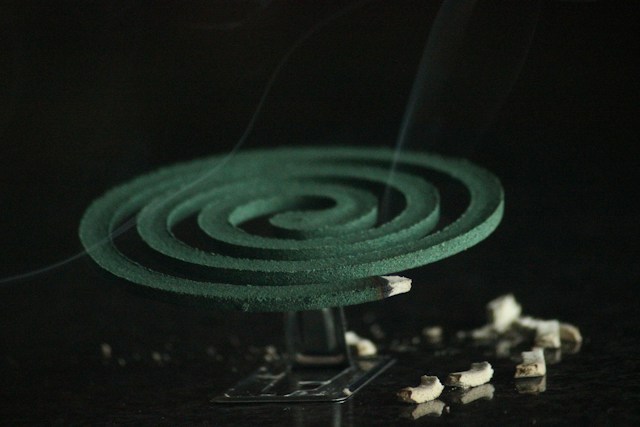Belize is home to numerous insect-borne diseases, such as malaria, Chagas disease (also known as kissing bug disease), dengue fever and leishmaniasis. Other tropical illnesses include cholera, typhoid and tuberculosis.
Belize has achieved remarkable reductions in malaria incidence over three decades through vigilant malaria surveillance, decentralized access to diagnosis and treatment, complementary preventive measures including indoor residual spraying and long-lasting insecticide nets.
Malaria
The World Health Organization recently recognized Belize’s incredible success in eliminating malaria, marking an extraordinary achievement by this Central American country. Since 1994 when malaria cases reached their peak of 10,000 indigenous cases per year, Belize has achieved zero indigenous cases thanks to strong surveillance for vector-borne diseases like malaria as well as access to diagnostics and treatments; effective mosquito control measures like long-lasting insecticide-treated mosquito nets as well as indoor spraying of insecticides have all contributed towards Belize becoming malaria free – a powerful example for other endemic countries across America or even globally. Belize stands as an inspiration.
Belize achieved malaria-free status by showing that Anopheles mosquito transmission had been interrupted nationwide for three consecutive years, joining a select group of nations worldwide that have successfully done so and set their sights on making progress towards eliminating malaria altogether – something they hope may happen by 2025 if all efforts continue as planned.
An army of community health workers and volunteer collaborators were the cornerstone of Belize’s malaria elimination program. They screened people living in high-risk communities for signs of malaria and provided rapid diagnostic tests as soon as symptoms appeared, followed by prompt treatment. Furthermore, they educated the public on ways to lower their risk by cutting outdoor activities in evenings and using insecticide spraying solutions at home – measures which greatly decreased malaria transmission risk.
Belize’s success at eliminating malaria is the result of over 70 years of hard work, yet much remains to be done. Belize is now targeting other infectious diseases endemic to its region such as tuberculosis and HIV; to make further strides it is crucial that countries support and implement the Global Technical Strategy for Malaria 2016-2030 target 3.3, which seeks to eliminate epidemics of malaria.
Malaria remains a threat in some parts of Belize, especially Toledo and Stann Creek in the south, and Cayo in the center. According to WHO recommendations, travelers visiting areas where this disease is prevalent are advised to take preventive medicines (antimalarial drugs).
Dengue
Dengue fever, transmitted by mosquito borne Aedes mosquitoes, has become an increasing global health risk. Found primarily in tropical and subtropical regions where Aedes mosquitoes, its vector, thrive. Symptoms may include fever, headaches, joint and muscle pains and even rash; severe cases have even resulted in death; unlike malaria there is no vaccine against dengue virus infection.
Dengue fever typically appears within 2-7 days following being bitten by an infected mosquito, typically manifesting itself with fever, headaches, joint and muscle pains, rash, abdominal discomfort and abdominal bloating. Sometimes dengue hemorrhagic fever develops; this serious form is marked by high fever levels accompanied by bleeding from nose and gums as well as lymph node enlargement as well as bleeding skin and joints which in some cases leads to shock or circulatory failure.
Diagnosing dengue fever can be challenging due to symptoms that overlap with those of multiple other diseases. A detailed history of travel and exposures may help in diagnosing the illness more quickly; additionally, lab identification such as nonstructural protein-1 antigen detection or serologic testing are crucial in quickly diagnosing dengue.
Treatment of dengue fever typically includes rest, fluids, and pain relievers such as Acetaminophen (Tylenol). Aspirin and Ibuprofen (Advil, Motrin) should be avoided as these medications could exacerbate bleeding issues in those suffering from this disease.
Personal preventive plans for dengue fever include staying indoors when it is sunny, using bed nets while sleeping under them, applying permethrin-treated clothing, shoes and camping gear and applying insecticide-treated clothing like permethrin bug spray to clothes, shoes and bedding – and repellents with DEET, IR3535 or Icaridin repellent on exposed body areas to ward off mosquito bites during both day and night time; using repellents like DEET on exposed areas is also recommended as are vaccinations against yellow fever, hepatitis A/B virus, Typhoid and Rabies vaccines to protect oneself against infections caused by mosquito bites!
Zika
In 2016, the Zika virus was causing substantial health and economic concerns throughout Latin America, particularly Brazil. Spread by Aedes aegypti mosquitos, its infection has been linked with birth defects including microcephaly in newborns.
As a response to this outbreak, Belize’s Ministry of Health announced a partnership between Notre Dame University and Mayo Clinic and Belizean officials in order to study how the virus spreads, develop new vaccines and find effective treatments. They are taking an innovative four-tiered approach which encompasses research, clinical care, public health education and outreach efforts.
Pregnant travelers should avoid all areas where Zika virus activity is active until further notice, as exposure could result in serious birth defects. Condoms should also be used when engaging in sexual contact; women trying to become pregnant should either delay travel until after giving birth or use birth control during travel.
Dengue and Chikungunya infections may also be prevalent in Belize; their transmission relies primarily on day-biting mosquitoes; as a result, travelers should take careful steps against mosquito bites from April to November during wet season and consult their physician six weeks beforehand about appropriate malaria prophylaxis medication for themselves.
Typhoid fever, caused by Salmonella typhi, is also a risk for visitors to Guatemala and Belize. This highly infectious and potentially life-threatening infection should be offered the typhoid vaccine to all eligible travelers as well as encouraging them to follow food and water precautions. Providers should offer these vaccines prior to travel to ensure maximum protection and promote compliance by travelers in these two countries.
As many respondents acknowledged mosquito control to be integral to the success of their tourism-based businesses, some expressed displeasure with media sensationalization of Zika as having dire repercussions for them and their business. Still, most indicated interest in purchasing larvicidal products provided they were safe for human, animal, plant, and environmental health; specifically customers safety was the determining factor; only two percent reported having bought one yet.
HIV/AIDS
Belize is actively taking steps to treat and prevent HIV/AIDS, which has affected many of its citizens. Their efforts include providing life skills-based HIV education to secondary school students as well as accessing condoms. Furthermore, their government offers programs of treatment for workers in health and security who may have been exposed to HIV. Such efforts aim at both decreasing stigma associated with those living with HIV/AIDS while simultaneously improving lives already infected.
There is an urgent need for public health campaigns in order to raise awareness of risk factors and preventive methods related to HIV/AIDS infection, reduce stigmatization and encourage people to seek medical help as soon as possible. It is essential that such campaigns occur frequently for maximum impact.
Though Belizean society is generally aware of HIV’s dangers, testing and treatment remain barriers. These include ignorance, social stigma and fear of contracting an STD; these barriers may be overcome through improved education as well as media campaigns providing accurate information.
KHMHA A&E) in Belize City conducted a recent study which demonstrated an increase in women seeking HIV testing. Interviews were conducted with women referred by family or physicians; interviews focused on barriers and facilitators related to testing; results will be used for future interventions.
As part of its efforts to curb HIV/AIDS in Belize, efforts have included encouraging condom use, informing young people of risks of sexual transmission of HIV and encouraging sex workers to use protective equipment. Other efforts include decreasing stigma against lesbian, gay, bisexual and transgender (LGBT) people living with HIV/AIDS as well as creating a housing program specifically for homeless LGBT individuals and pledging to build 10,000 houses over five years.




